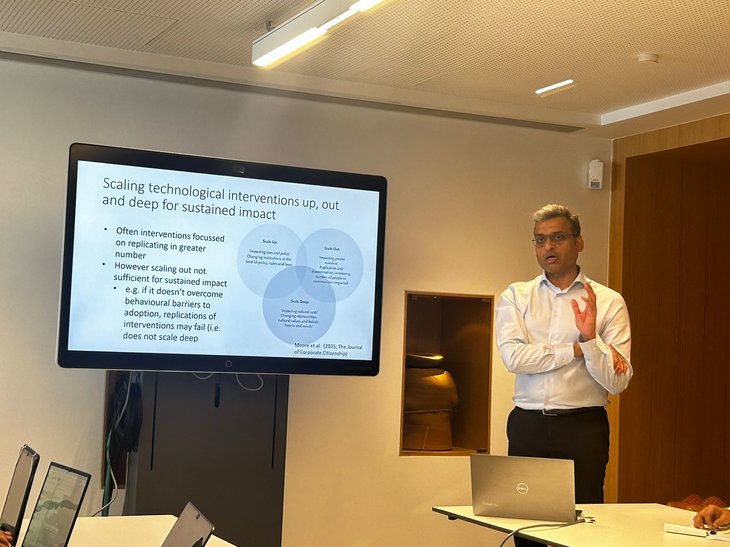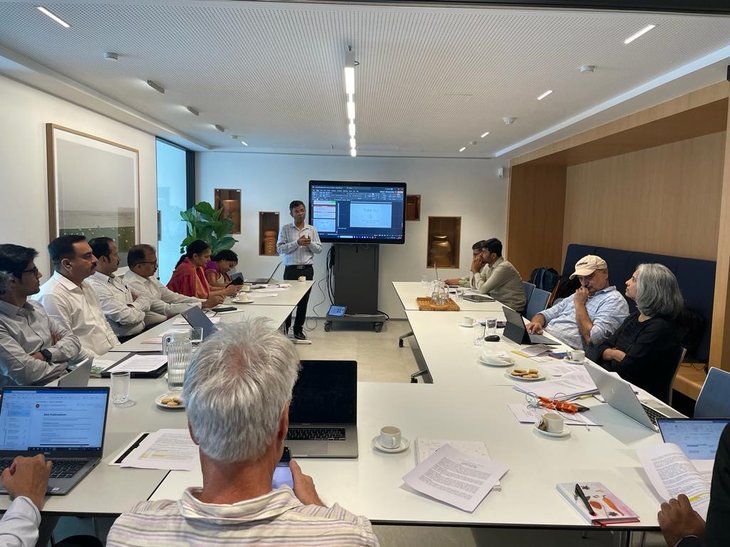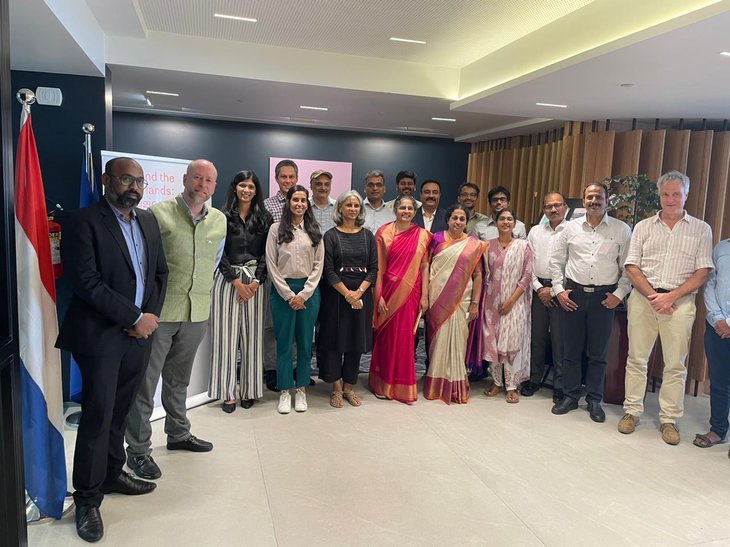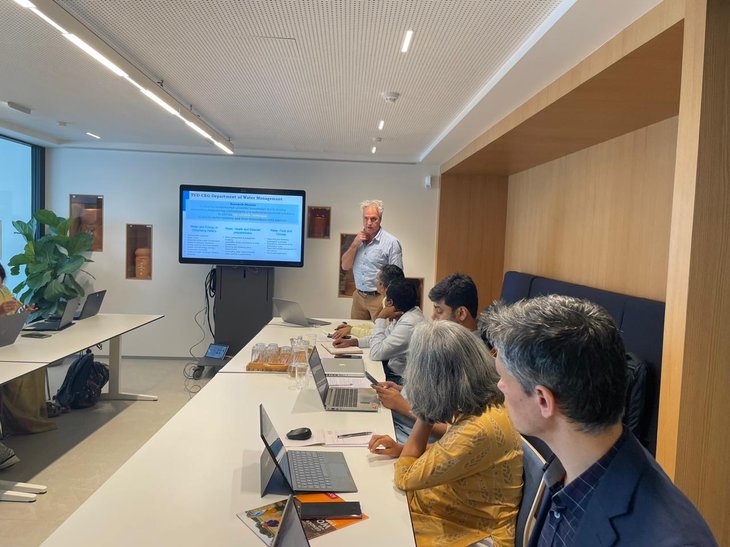Indo – Dutch workshop on Water Sustainability
In November, group of researchers from TU Delft, IIT Bombay, Amrita University and Solidaridad came together for a two-day workshop on ‘Water and Sustainability’ hosted by the Netherlands Consulate in Mumbai and the Nentherlands Innovation Network India team Mumbai.
The workshop aimed at mutual learning aimed to reach an understanding on to what extent cultural and socioeconomic barriers have to be overcome for successful Indo-Dutch water partnerships. The attendees worked together to identify concrete steps to scale up technology adoption and Indo-Dutch know-how and technologies in drinking water, sanitation and agriculture water
The event also aimed to strengthening existing collaborations between the institutes: TU Delft and Amrita partner on a Joint Center of Excellence in Water Sustainability, while TU Delft and IIT Bombay recently signed a cooperation MoU during our Rector’s visit to Mumbai.
Several use cases were discussed including the NL-India LOTUS HR project, presented by TUD’s Dr. Ralph Lindeboom and the ‘Hanging Garden toilet’ project, presented by Amrita’s Dr. Sanjay Pal. TU Delft’s Dr. Saket Pande presented on The last mile: technology adoption in the water sector, while Prof. Jules van Lier shared best practices from the TU Delft – Amrita joint center on water systems, treatment and technology adoption.
Representatives from the Mumbai Municipality Cooperation (BMC) also attended the workshop and talked about the sewage water challenges in Mumbai. Together with TU Delft and IIT Bombay the Municipality will seek further collaboration for these challenges. The outcomes of the workshop will result in a white paper and follow up collaborative activities to further shape up the water collaboration between the institutes.
India has just 4% of the world’s fresh water — but 16% of the global population. 76 million people don’t have access to safe drinking water and 21% of the country’s diseases are water related. Over 300, 000 children under five years of age die each year due to diarrhoea. The total potential area to be brought under micro irrigation (drip and sprinkler) in India is 42.2 million hectares of land, however only 3.9 million hectares of land or 9.2% of the potential, is currently under micro irrigation. Existing technologies in drinking, wastewater and agricultural water sectors can significantly improve water security. Yet, in spite of several existing water innovations, widespread adoption and scale up of such innovations remains challenging. A particular case in point is the export of Dutch water technologies to India that have yet to gain ground. Indigenously designed and produced lower cost technologies and water interventions in drinking water, sanitation and agriculture have relatively gained more traction.



